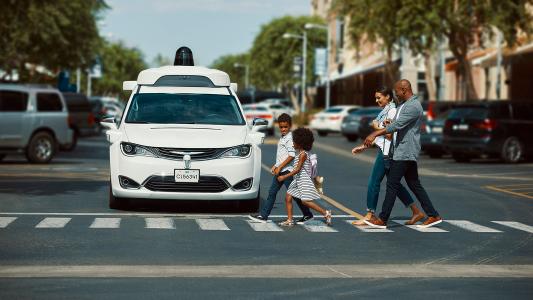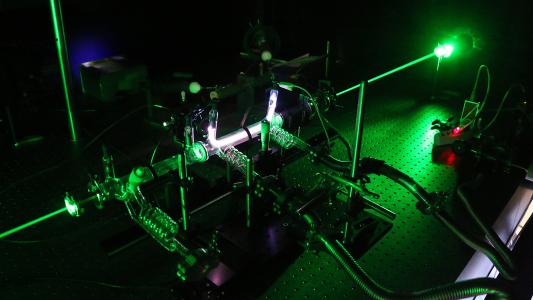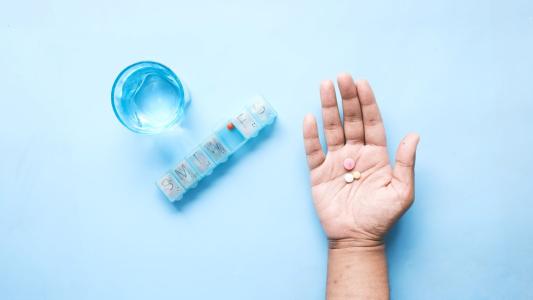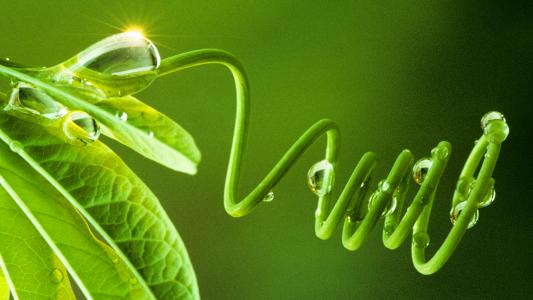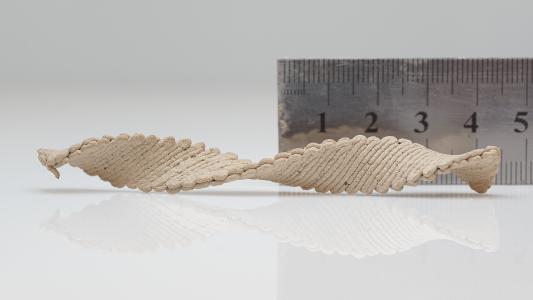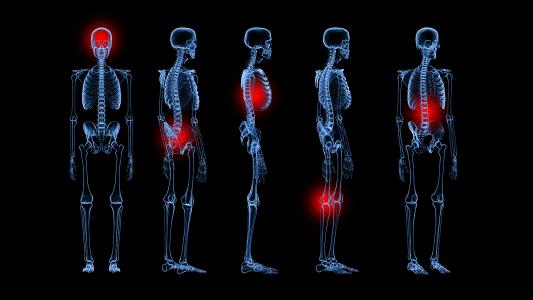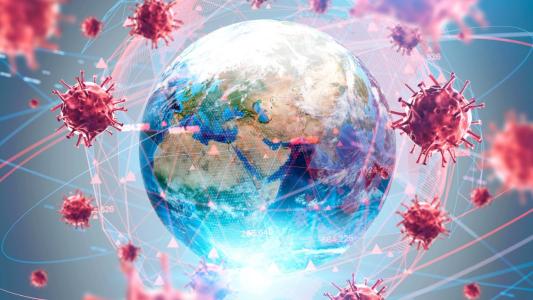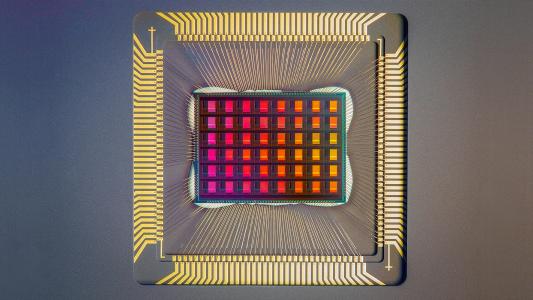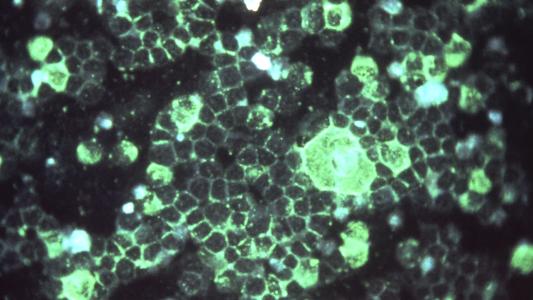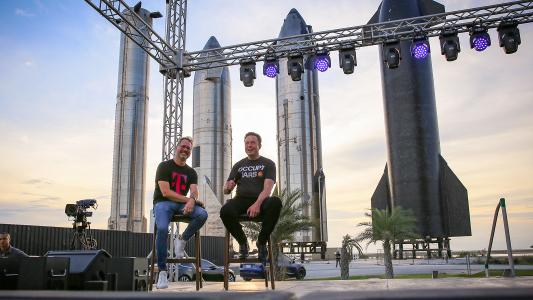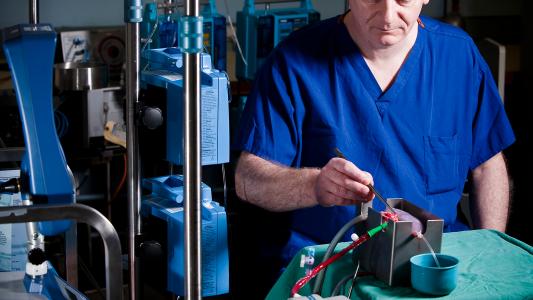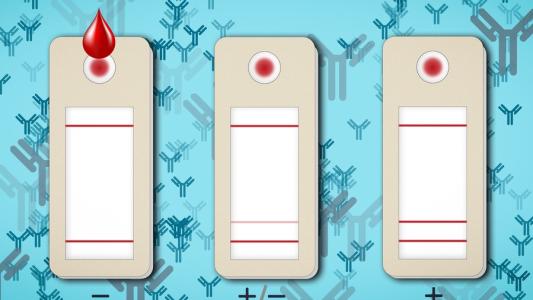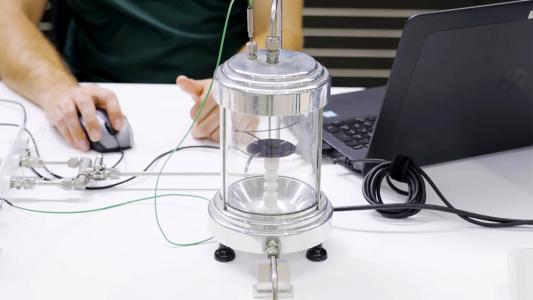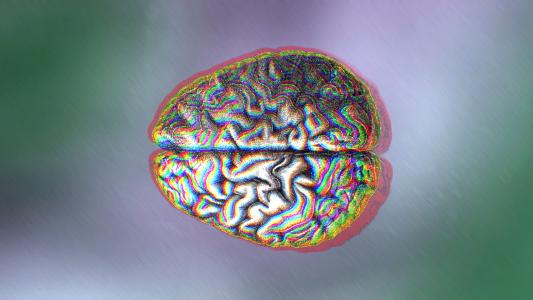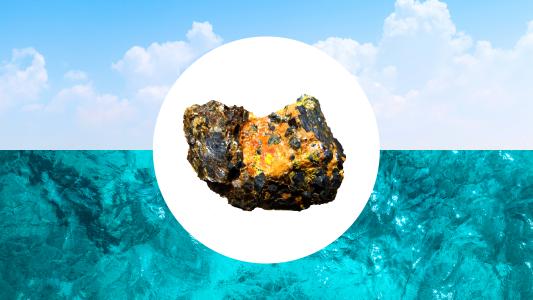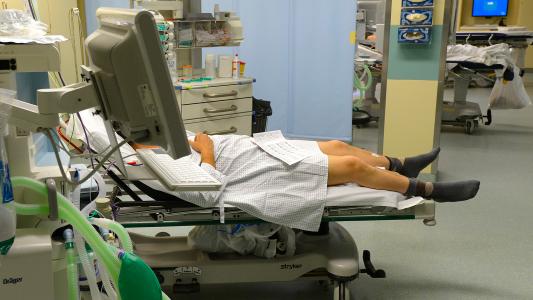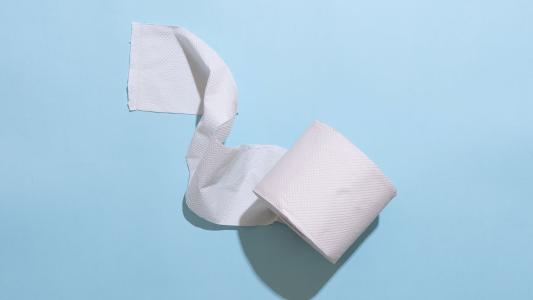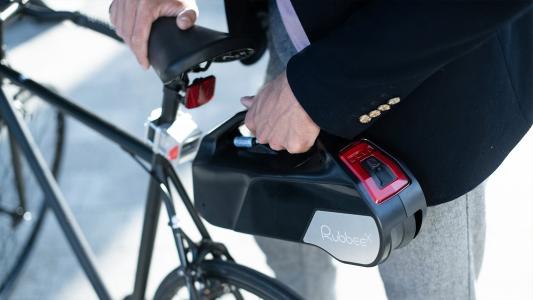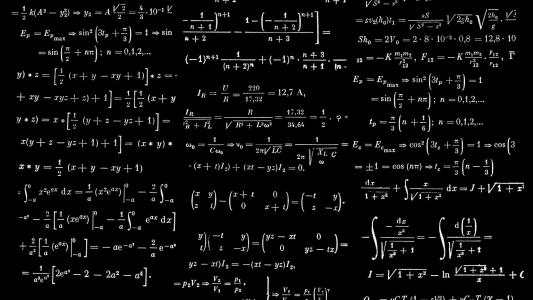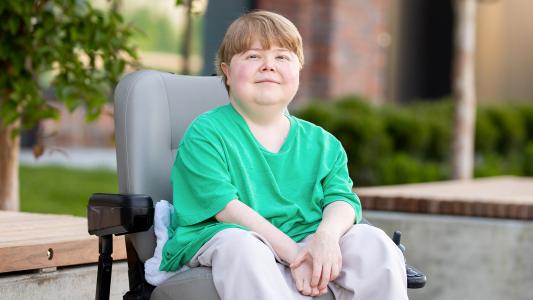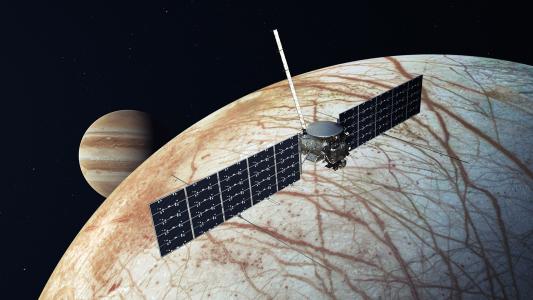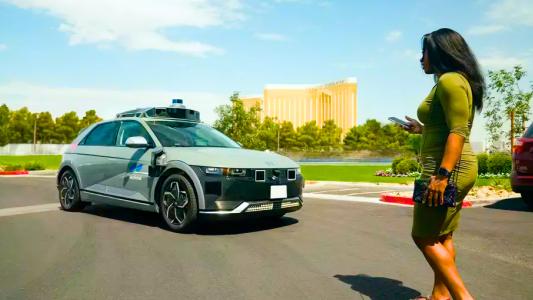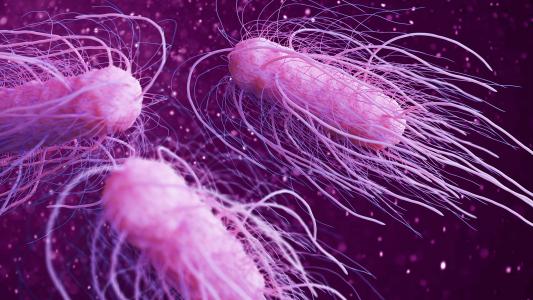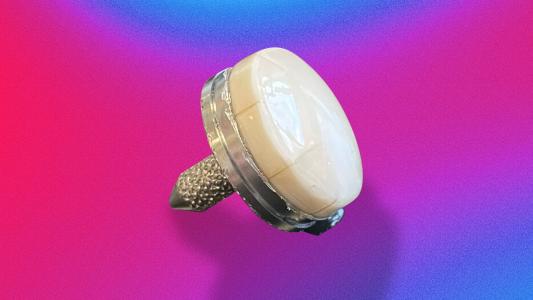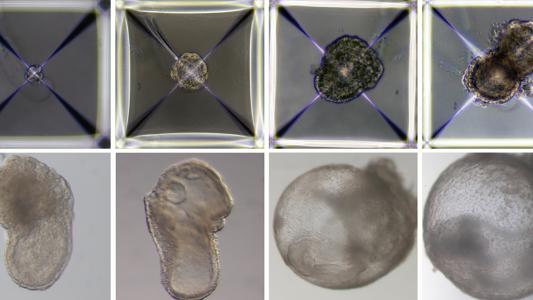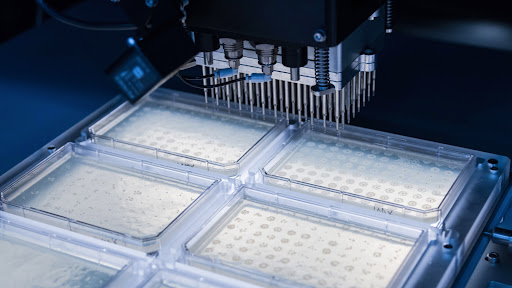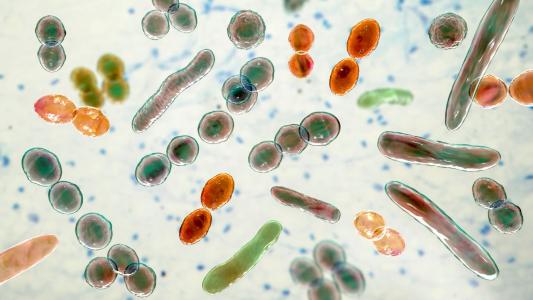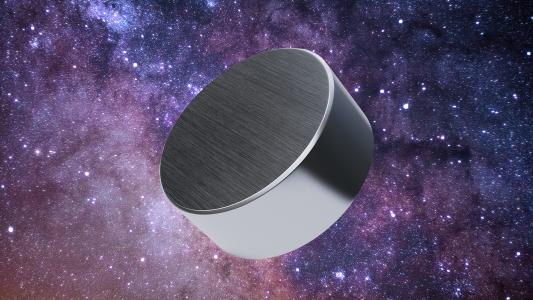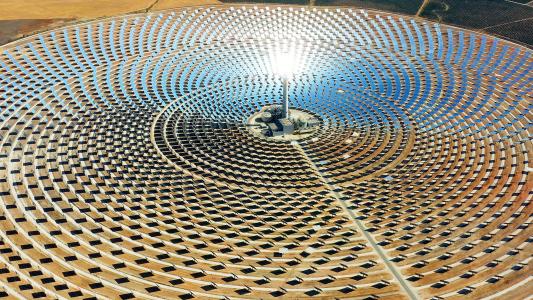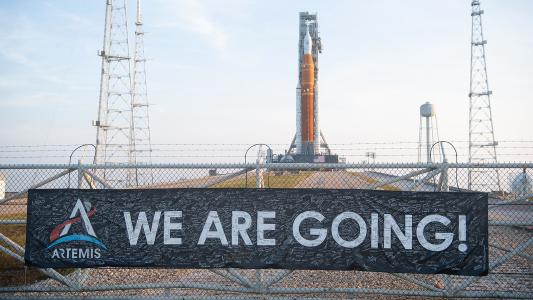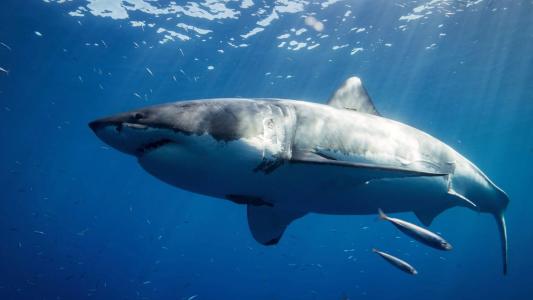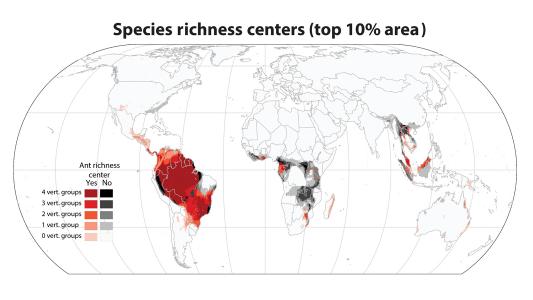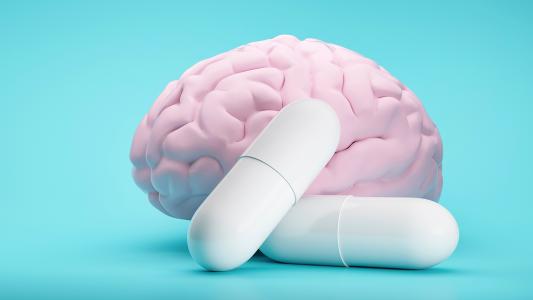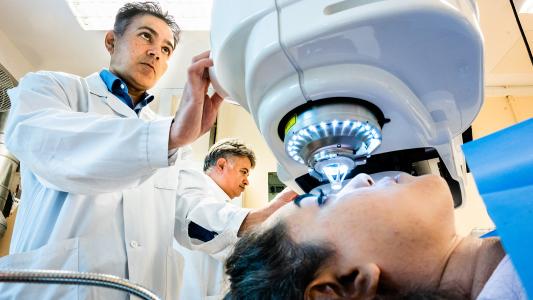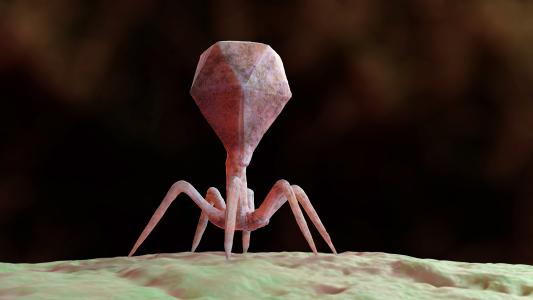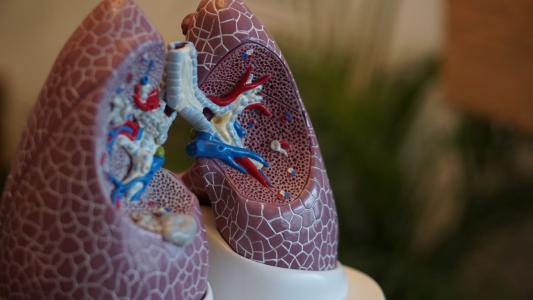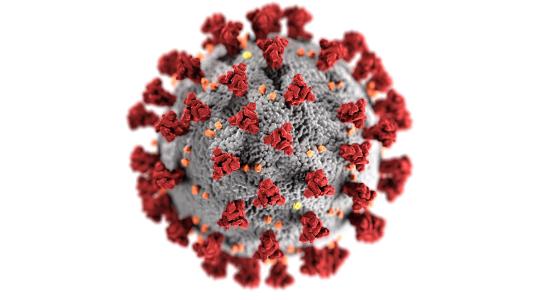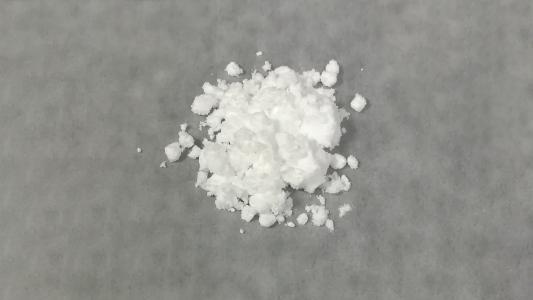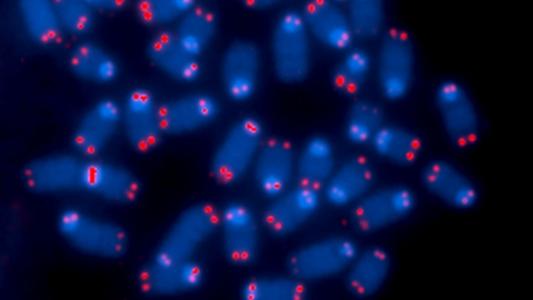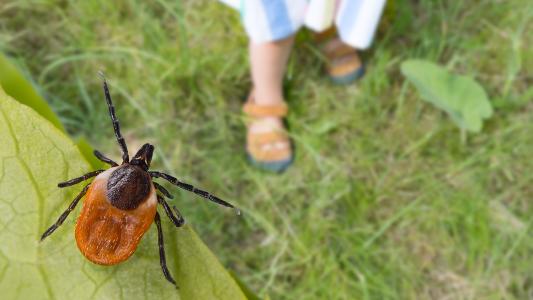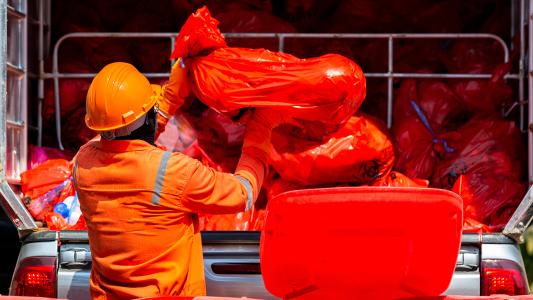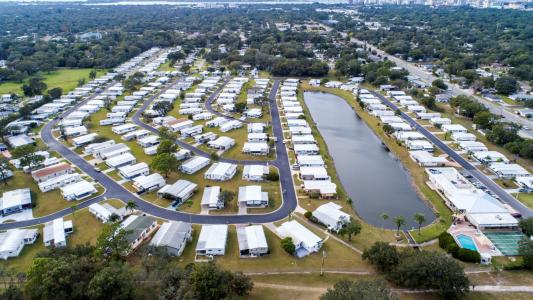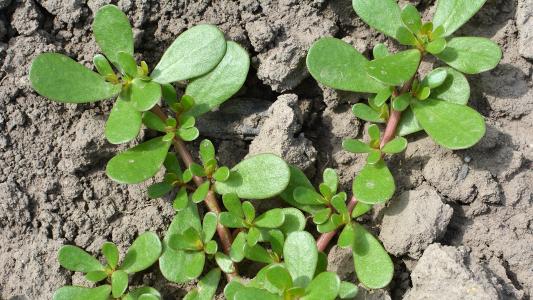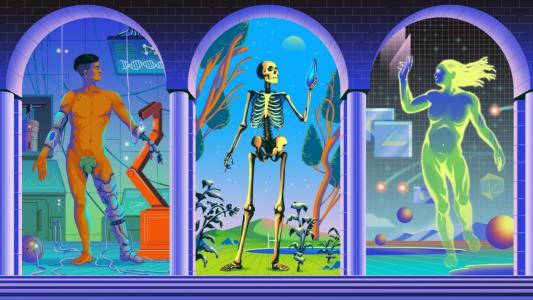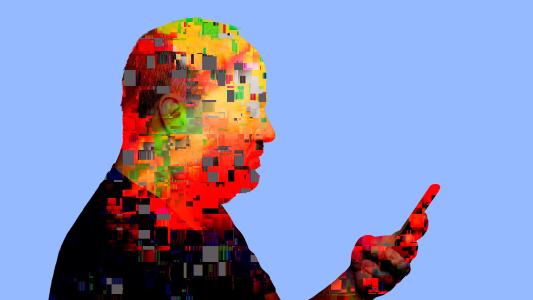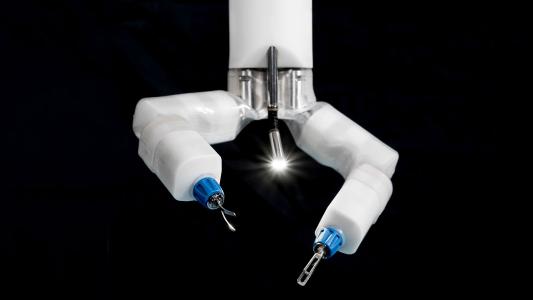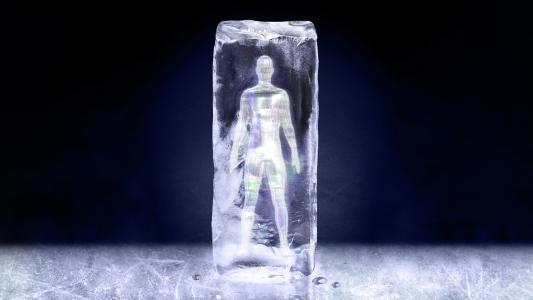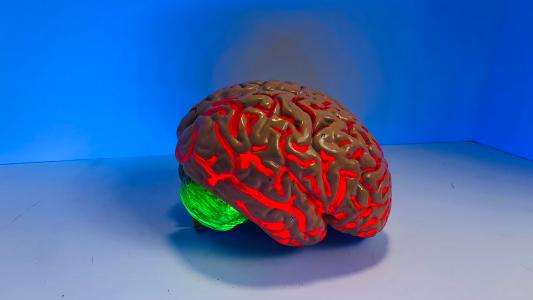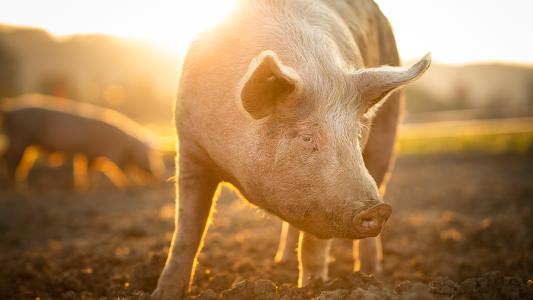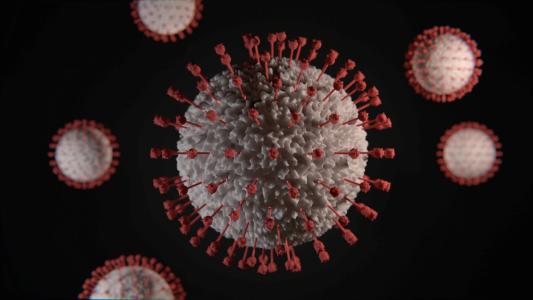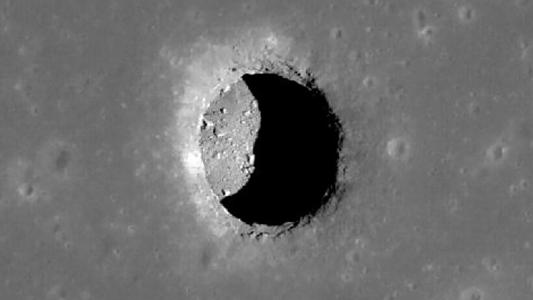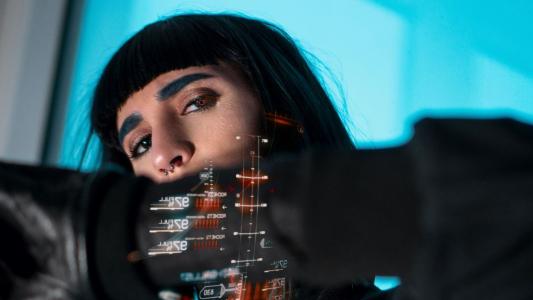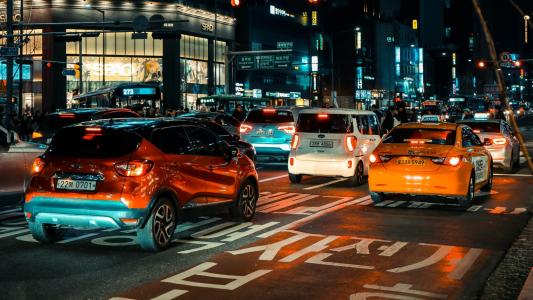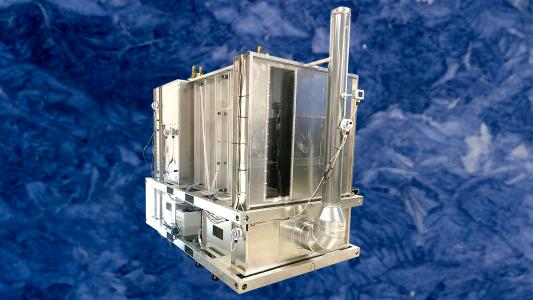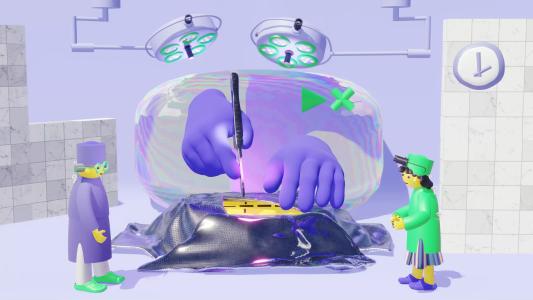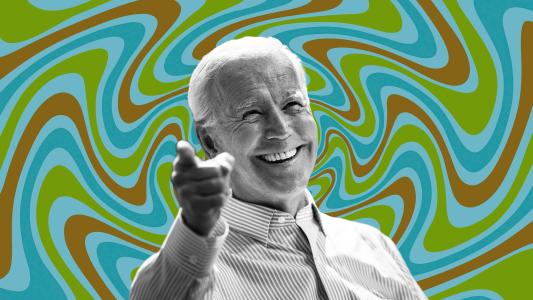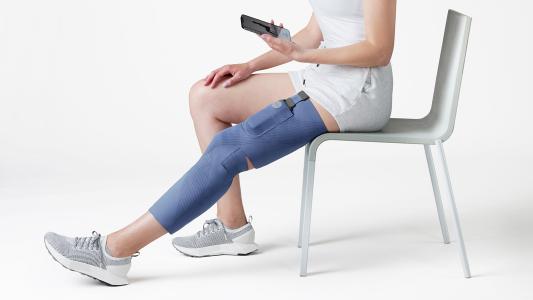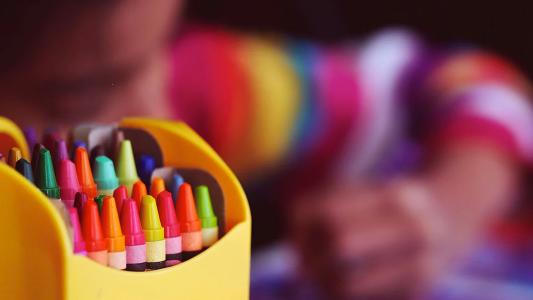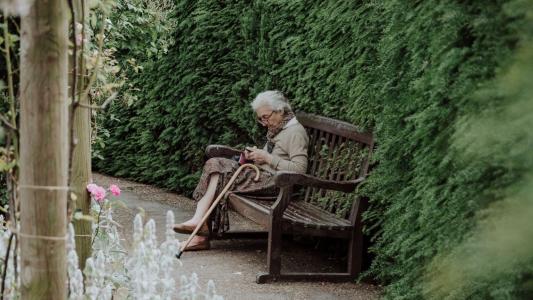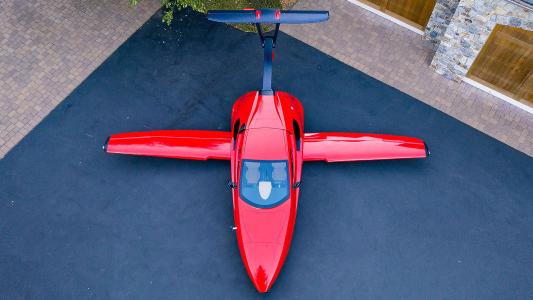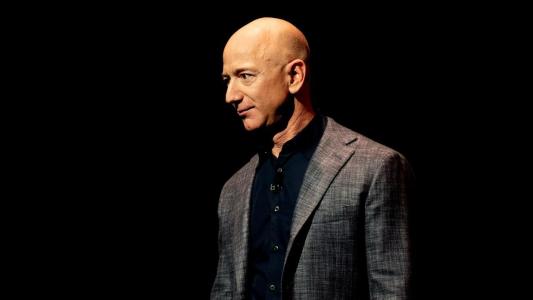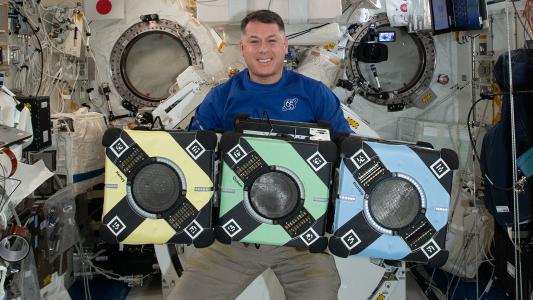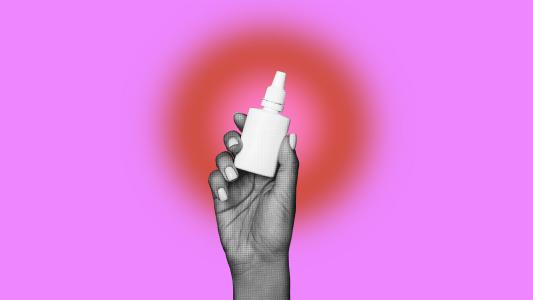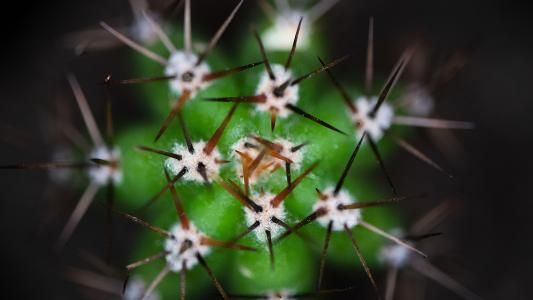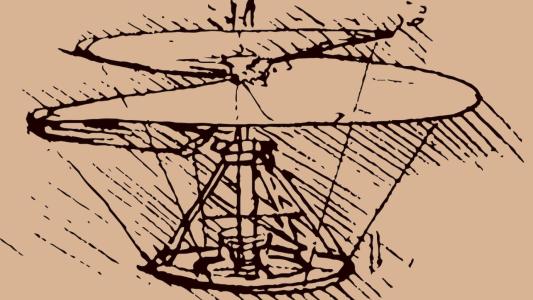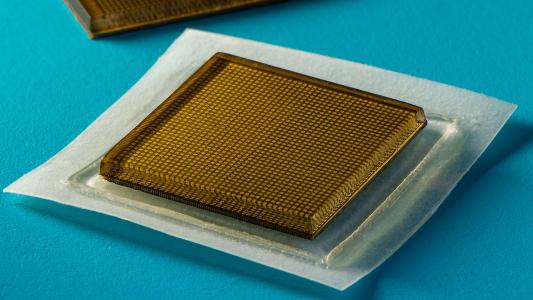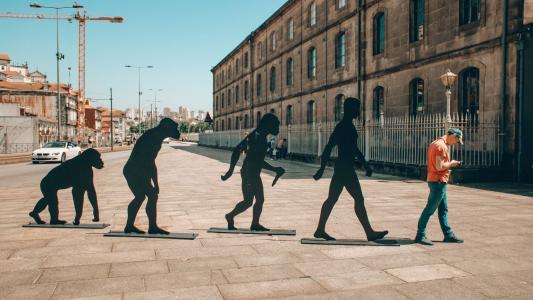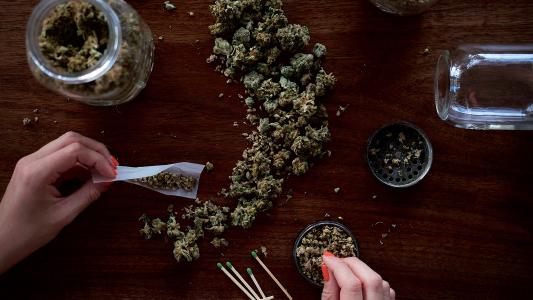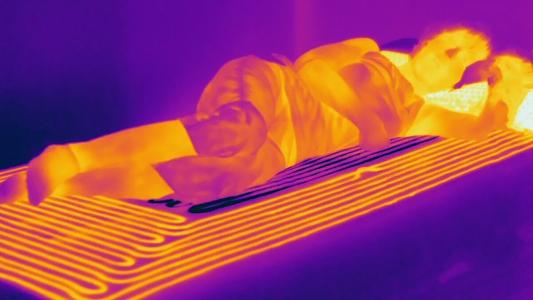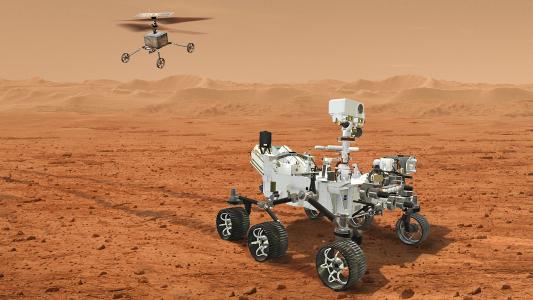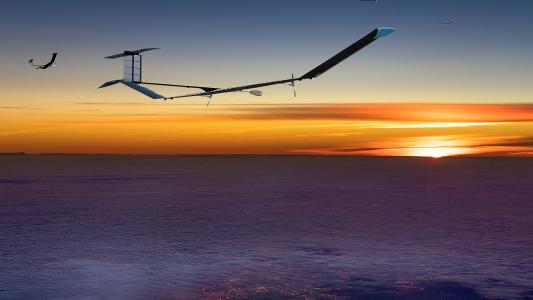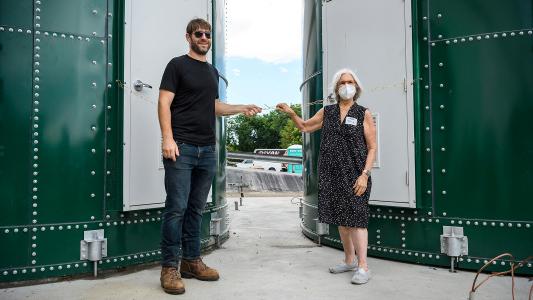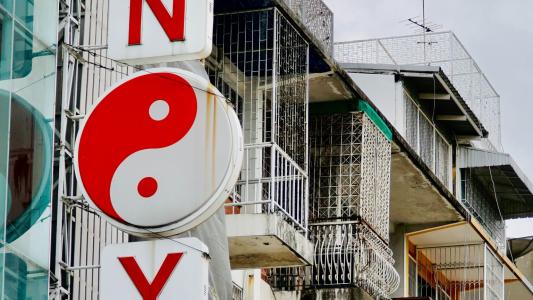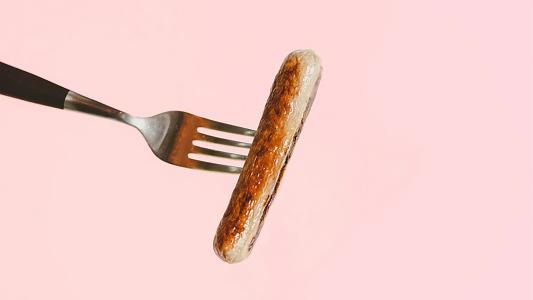How AI could learn from Aesop’s fables
When USC researchers tried to teach an AI simple fables, they discovered that the process is a lot harder than it sounds.
On the road to autonomous cars, driver fatigue will be a problem
New research from Waymo points the way to overcoming driver fatigue in cars that are almost — but not quite — self-driving.
A plasma reactor could help astronauts breathe on Mars
Future astronauts might produce oxygen on Mars by blasting carbon dioxide molecules apart inside a plasma reactor.
New industries are embracing apprenticeships
Eschewing costly college degrees, earn-and-learn apprenticeship programs are pushing into new industries.
5 drugs that changed the world (and what went wrong)
Anesthesia, penicillin, antibiotics, diazepam, and the birth control pill have all radically changed our lives.
Breakthrough in photosynthesis boosts plant growth up to 30%
In a small study, researchers have engineered soy plants to have higher yields thanks to improved photosynthesis.
Powerful new magnets bring fusion power a step closer
A new system for generating magnetic fields suitable for spherical tokamaks is fueling progress on nuclear fusion.
3D-printed wood furniture could ship flat, then dry into shape
A new way of 3D printing wood that takes advantage of warping could change how we build things in the future.
“Synthetic biomarkers” could catch your cancer in the future
When the body’s own biomarkers aren’t enough, researchers have begun creating their own to help fight cancer.
An international team sets out to cure genetic heart diseases with one shot
Researchers from the UK, US, and Singapore are beginning work on a genetic heart cure they hope to begin clinically testing within five years.
Researchers may have created a universal coronavirus vaccine
All currently licensed COVID-19 vaccines target the spike protein’s S1 region, which is prone to mutations. We need a universal vaccine.
Stanford’s new microchip could put powerful AI on your devices
A Stanford-led team has developed a new microchip that could let us run advanced AI programs directly on our devices.
Pfizer’s RSV vaccine is 86% effective at preventing severe illness
According to a huge phase 3 trial, Pfizer’s RSV vaccine is nearly 86% effective at preventing severe illness in older adults.
SpaceX’s Starlink will offer satellite access for T-Mobile users
T-Mobile customers will soon have access to SpaceX's Starlink satellites, ensuring they’ll have mobile coverage nearly everywhere in the US.
Scientists convert kidney to universal “O” blood type
Kidneys still need to be tissue matched, but by converting them to type O, more will be available for transplant.
MIT just created a test that can tell if you’re immune to COVID-19
MIT researchers have developed an easy-to-use test that may be able to predict an individual’s immune response to SARS-CoV-2.
Today’s coal plants could be converted to run on clean hydrogen
Australian startup Star Scientific has developed a tech it says makes it easy to use hydrogen fuel at existing coal-fired power plants.
New epilepsy treatment could stop seizures in their tracks
A new epilepsy treatment that's delivered as a nasal spray may be able to prevent seizures or even interrupt them.
A new nova disappeared faster than ever, and an even bigger cosmic catastrophe is coming
Today, the fastest-ever nova to fall off has been discovered, and even faster ones may be out there. What comes next?
Researchers have found a way to pull more than 95% of uranium from seawater
Seawater contains millions of tons of uranium, but it’s too expensive to extract. A new material may change that.
A sepsis-catching AI has proven effective in hospitals
A new AI for spotting sepsis, which accounts for ⅓ of hospital deaths, was found to be effective in a large trial.
Listen to the sound of a black hole, remixed by NASA
NASA scientists have “remixed” the incredibly deep sounds emitted by a black hole 240 million light-years away.
What smart toilet seats reveal about digital health’s evolution
Digital health is attracting record levels of investment in products such as smart toilet seats, which can help millions get access to care.
This simple kit turns your regular bike into an e-bike in minutes
The Rubbee X is a simple e-bike conversion kit that could help get more people out of gas-powered cars and onto climate-friendly bicycles.
New algorithm aces university math course questions
Researchers use machine learning to automatically solve, explain, and generate university-level math problems at a human level.
First personalized CRISPR therapy approved for trial
The FDA has approved a trial for the first personalized CRISPR therapy, which was developed to treat Duchenne muscular dystrophy.
NASA thinks it may snow upside down on Europa
A study of “underwater snow” on Earth is informing NASA’s hunt for habitable locations on Jupiter’s icy moon Europa.
The challenges of wireless farming technologies – like transmitting data through mud
The Agricultural Internet of Things involves technologies such as wireless underground communications and antennas in soil.
Free Lyft robotaxis are hitting Las Vegas
Motional and Lyft are now offering robotaxi rides in Las Vegas.
American Airlines plans to buy 20 supersonic planes
American Airlines has paid a non-refundable deposit for 20 supersonic planes from Denver-based startup Boom Supersonic.
Light pulses can stop dangerous food poisoning like Salmonella
A team at Penn State has developed a pulsed light technique capable of killing common food poisoning pathogens.
Nuclear power might not be dead in California
California is considering a $1.4 billion plan to delay the retirement of Diablo Canyon, its last nuclear power plant.
A large solar storm could knock out the power grid and the internet
Typical amounts of solar particles hitting the earth’s magnetosphere can be beautiful, but too much could be catastrophic.
Earth’s orbit is about to get way more crowded
Satellite mega constellations could bring the world online, but they're also a threat to astronomy. Can we study space and build in it, too?
NASA-funded scientist says “MEGA drive” could enable interstellar travel
The mega drive might provide enough thrust for a spacecraft to travel near the speed of light using only electricity, says one physicist.
Synthetic cartilage is now stronger than the real stuff
Using a heating process, Duke researchers have created a synthetic cartilage hydrogel that can outperform the real thing.
Mouse embryos with beating hearts have been created entirely in the lab
Researchers at the Weizmann Institute of Science have developed mouse embryos, complete with organ structures, purely from stem cells.
Harnessing nature’s secret: How synthetic biology could save the planet
In partnership with Ginkgo Bioworks
Did nature hold the key to reversing climate change all along? Synthetic biologists think so.
Which microbes live in your gut? A microbiologist tries at-home test kits
A microbiologist looks at how home test kits work, what kind of information they provide and if they can really help change your gut.
Magnets could help astronauts breathe on Mars
A new study suggests magnets might be the key to developing lighter, simpler systems for generating oxygen in space.
Gates-backed company is using robots to build mega solar farms
With new capital from a Bill Gates-backed VC firm, Terabase wants to automate solar farm construction.
Next US energy boom could be wind power in the Gulf of Mexico
Wind power on land has seen remarkable growth in the U.S. over the last 15 years, including in Texas. Is offshore wind next?
NASA’s massive moon rocket is finally ready for launch (Updated)
After multiple delays, NASA’s new moon rocket — the Space Launch System — is finally on the launchpad ahead of its first test flight.
You no longer need a prescription to buy hearing aids in the US
The FDA is making over-the-counter hearing aids available to Americans, potentially making the devices cheaper and more accessible.
Great white sharks occasionally hunt in pairs
Think sharks are always solitary? New research sheds light on social behavior of these mysterious predators.
AI has mapped all of the world’s known ant species
Using over a million data points and a machine learning algorithm, a team of researchers has mapped all of the ant species currently known.
Mathematicians suggest the “37% rule” for life’s biggest decisions
Mathematicians tell us that, to maximize the chances of the best outcome, we ought to ditch the first 37% of any options.
New kind of schizophrenia drug aces human trial
KarXT, a new schizophrenia treatment that addresses a wider range of symptoms than existing meds, has aced a phase 3 trial.
Eye implant made from pig skin reverses blindness in 14 people
Using collagen from pig skin, Swedish researchers created an artificial cornea that reversed blindness in 14 people.
Viruses may one day treat inflammatory bowel disease
Researchers have created a cocktail of viruses that may be able to treat inflammatory bowel diseases like Crohn’s.
Nanoparticle sensor can distinguish between viral and bacterial pneumonia
MIT researchers have designed a sensor that can distinguish between viral and bacterial pneumonia infections.
Yale study finds low levels of a hormone may predict long COVID
Yale and Icahn School of Medicine researchers may have found biomarkers for identifying long COVID.
Cheap carbon capture tech could filter out CO2 in smokestacks
A new carbon capture technology made from the cheap material melamine could help keep emissions out of the atmosphere.
Cells become zombies when the ends of their chromosomes are damaged
Damage to the ends of the chromosomes can create “zombie cells” that are still alive but can’t function, researchers say.
Only human Lyme vaccine in development enters phase 3 trial
Pfizer and French biotech Valneva have announced a phase 3 clinical trial testing the human Lyme vaccine.
Half of all vaccines are wasted. A gel could save them.
A new hydrogel that wraps around heat-sensitive molecules could help prevent vaccine waste by keeping them viable at higher temperatures.
Inside the crypto black markets of Argentina
Argentina’s black market for cash is embracing crypto — but it's not what crypto proponents expected.
Debunking stereotypes about mobile homes could make them a new face of affordable housing
People see manufactured housing parks as problems. We recognize them as part of the solution to housing crises.
Text-to-image AIs are changing art forever
Text-to-image AIs that draw whatever you describe in text are making it easy for anyone to create unique art online.
Weed’s “superpower” could help feed the planet
A Yale study focused on how photosynthesis works in the common weed purslane puts us closer to engineering crops resistant to climate change.
Transhumanism: Savior of humanity or false prophecy?
While many of the technologies upon which transhumanists base their dream are real and world-changing, they have major limitations.
Startup that created Elon Musk’s foldable house opens a new factory
Elon Musk has confirmed he owns a foldable house made by Boxabl, a startup hoping its manufactured homes can help end the housing shortage.
5 ways to cope with increasingly intense heatwaves
Heatwaves in Japan and Italy reached record-breaking temperatures in June. How can humans cope with these dangerous conditions?
Russians reportedly building a satellite-blinding laser. How would it work?
If Russia is able to build the laser, it would be capable of shielding a large part of the country from the view of satellites.
Smartphones might actually be improving your memory
Rather than causing “digital dementia,” storing important information in a digital device can actually improve memory.
NASA is sending a robot surgeon to the ISS (Updated)
A MIRA surgical robot is heading to the ISS in 2024 so developers can test its potential to help astronauts survive medical emergencies.
What ever happened to the first cryogenically frozen humans?
For decades, people have arranged to freeze their bodies after death, dreaming of resurrection by advanced future medicine.
A new drug could repair stroke damage to memory and movement
A new drug can repair stroke damage in mice, improving memory and motor skills. If it works in humans, it could lead to a paradigm shift in stroke treatment.
Yale team partially revives dead pig organs an hour after death
Yale’s OrganEx technology has been used to partially revive the organs of dead pigs an hour after their hearts stopped beating.
Long COVID-19 and chronic conditions after viral infections may stem from an overactive immune response
Understanding the immunological mechanisms underlying long COVID-19 is the first step to addressing a quickly worsening public health problem.
This fermented cooking oil could replace vegetable oil
Zero Acre Farms is using fermentation to create a cultured oil that’s healthier and more sustainable than traditional cooking oils.
NASA discovers the perfect cave to live in on the moon
A newly identified lunar pit where the temperature is always about 63 F could be the perfect place for NASA’s future moon base.
The Singularity: When will we all become super-humans?
Are we really only a moment away from "The Singularity," a technological epoch that will usher in a new era in human evolution?
MIT’s new algorithm for self-driving cars is open-source
MIT scientists unveil the first open-source simulation engine capable of constructing realistic environments for autonomous vehicles.
Bill Gates-backed startup is building sustainable ACs
Blue Frontier is developing a new kind of air conditioner that requires 50-90% less electricity than the units we use today.
Why don't surgeons train like fighter pilots? Now some do.
Using AI and analysis, Theator is helping surgeons improve how pilots and pro athletes do: by going to the tape.
The Biden administration is preparing for legal psychedelics within two years
The Biden administration’s Department of Health and Human Services has sent a memo supportive of psychedelic therapies. What does that mean for the field?
Lightweight bionic zaps muscles to help you walk longer, faster
The AI-powered Neural Sleeve electrically stimulates the leg muscles to help people with mobility issues walk faster and longer.
How these schools create problem-solving optimists
In partnership with Higher Ground
Solving the world’s greatest problems starts in one place: educating the leaders of tomorrow. This school is planning to do just that.
ADHD drugs might also treat Alzheimer’s disease
Scientists reviewed 40 years of clinical studies that assessed the effects of NA-targeting drugs, such as certain ADHD drugs, on Alzheimer’s.
This neurotoxic tree could be the key to a new kind of painkiller
Australian researchers searching for new ways to fight pain have turned to an excruciatingly painful Kiwi tree.
Flying sports car cleared for takeoff by FAA
Samson Sky has received approval from the FAA to begin flight testing its flying sports car, the three-wheeled Switchblade.
Jeff Bezos is looking to defy death – this is what we know about the science of aging
Will Bezos’s company succeed in extending the human lifespan? Maybe. But we can all benefit from studying aging.
Watch NASA’s flying space bots work alongside astronauts
The three Astrobee robots aboard the ISS foreshadow a future in which autonomous bots are NASA astronauts’ partners in space.
A cheap nasal spray cuts COVID-19 risk by 62%
A low-cost nasal spray co-developed by Oxford researchers could be the next powerful weapon against COVID-19.
How natural “short sleepers” thrive on 4 hours of sleep per night
Natural "short sleepers" thrive on only four to six hours of sleep per night. Could their genetics explain why?
Your genes may impact psychedelic experiences
UNC researchers have found evidence that the genetic makeup of a crucial receptor may impact your psychedelic experience.
15th century futurism: Leonardo da Vinci’s famous helicopter design finally takes flight
Da Vinci dreamed up a helicopter 400 years before they actually existed. Now, engineers have brought his design to life, but with a twist.
MIT’s new ultrasound sticker lets you see inside your body
MIT researchers have created an ultrasound sticker that can continuously monitor a person’s organs and tissues for up to 48 hours.
Swiss team sets new world record for solar power
Swiss researchers have developed two perovskite-on-silicon solar cells that are more efficient than previously thought possible.
How will humans change in the next 10,000 years?
If humans don’t die out in a climate apocalypse or asteroid impact in the next 10,000 years, are we likely to evolve further?
What your weed label really means
Through the largest analysis of commercial cannabis flower yet, Colorado researchers have found that the current labeling system falls short.
This smart mattress will help you fall asleep fast
UT Austin engineers have developed a smart mattress that manipulates a person’s body temperature to help them fall asleep fast.
These ancient trees survived a wildfire because of fire
The survival of an ancient grove of trees in Yosemite may be a powerful case study for controlled burns.
NASA will send two more helicopters to Mars to bring home samples
Inspired by the overachieving Ingenuity, NASA has updated the Mars Sample Return mission to include two new Mars helicopters.
The 5-hour rule: How to turn a wasted day into a successful one
The 5-hour rule asks us to devote at least one hour a day to learning, experimenting, and reflecting. Here's how to make it work for you.
US Army’s solar-powered drone is setting new records every day
A solar-powered drone being tested by the US Army has set a record for long-endurance flight, remaining aloft for more than 40 days straight.
Massive vertical mushroom farm opens in New York
Alt-meat startup MyForest Food has opened a new vertical mushroom farm in New York.
Widom of Daoism: why Yin-Yang is so much more than a tattoo
Yin-Yang symbolizes not a conflict or struggle but shows that nothing in life is solely either this or that.
The future of meat is sustainable — and a little weird
Ideas to reduce the meat industry's impact on the environment include 3D-printed steaks, cultivated tiger meat, and potty-trained cows.

